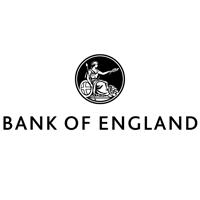The Bank of England’s Monetary Policy Committee (MPC) voted 7-2 to raise the Bank Rate by 75 basis points to 3.0% – the exceptions were one member who preferred a 50bp increase and another who voted for only 25bp higher rate. This decision did not come as any surprise as the MPC is solely focused on controlling inflation – a point that is emphasized by the Bank’s new forecasts which were published in the Monetary Policy Report along with the minutes of their meeting.
With inflation projected to rise to 10.9% in October when the latest rise in the energy price cap enters the calculations, rising interest rates are an inevitable consequence. However, this is lower than the 13% inflation rate in their August report because of the limit placed on Ofgem’s increase in the price cap under the government’s Energy Price Guarantee. The Bank’s forecast suggests that inflation will ease back towards 10% in Q1-23 before falling sharply from the middle of the rest of the year but this is very sensitive to energy prices and the policy decisions taken to mitigate any changes.
Although inflation control is the MPC’s main task, most of the headlines were attracted by their forecast that the UK economy would “face its longest recession since records began” (in the 1920’s), with their expectation UK GDP would fall for 8 quarters running from Q3-22 (which the Bank thinks will see a fall in UK GDP) to Q2-24. It is also important to note that the magnitude of the contraction, based on current market projections of interest rates, is broadly similar to the 1990 recession but does not have the same pace of recovery. The fall is less than either the 1980 or 2008 based recessions but takes longer than the former to see a recovery to the pre-downturn levels which look to be more like the 2008 event which took 21 quarters to unwind.
It is also worth noting that their model suggests that if you use unchanged interest rates from the current 3% level in the forecast for GDP you get both a shorter and shallower recession, although the full recovery is still projected to take longer than in either1980 or 1990. However, it is clear that interest rate policy at the moment is entirely focused on controlling inflation and not boosting economic growth. The other key points from the report include:
- The tight labour market has begun to ease and unemployment is expected to rise significantly over the next two years;
- Supply-side bottlenecks have “eased somewhat” and shipping costs have fallen;
- Nominal annual private sector regular pay growth rose to 6.2% in the three months to August, 0.6 percentage points higher than expected in the August report;
- Internationally, it noted a weakening in outlook for non-China emerging market economies (NCEMEs);
- European gas spot prices had fallen markedly since their peak in August.
To conclude, the highlights from the Agents’ Summary of Business Conditions show that manufacturing contacts reported a modest decline in output over the past year and while this was concentrated in consumer goods and construction products, demand for capital goods also eased. Supply-chain issues continue to constrain output, although to a lesser extent to earlier in the year. Exports grew at a modest pace, supported in part by the weaker pound.
Investment plans are starting to be constrained by the economic outlook, tighter financial conditions and increased working capital requirements although contacts continue to invest in IT and digital services and rising energy prices have encouraged some spending on renewable generation and energy saving measures.
You can access the Monetary Policy Report on the Bank of England website at https://www.bankofengland.co.uk/monetary-policy-report/2022/november-2022 and if you scroll down to where the report starts, the side-bar with the subject-related menu is useful for finding your way through the document – it includes a link to the Bank’s Agents’ update (box D). If you want the Monetary Policy Summary and the minutes of the MPC meeting, you can find these at https://www.bankofengland.co.uk/monetary-policy-summary-and-minutes/2022/november-2022.

